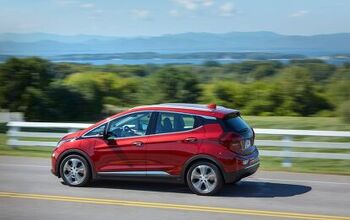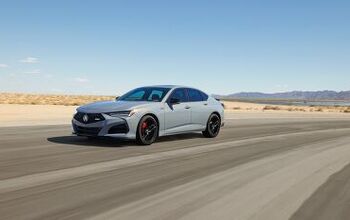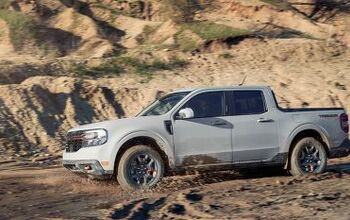Are Consumers as Resilient Amid the Pandemic as Ford Says?
The ninth annual Looking Further with Ford Trends Report has us asking if consumers are as resilient amid the pandemic as Ford claims. The study expresses how COVID-19 has wrought economic, political, and emotional woes, testing the limits of individuals, families, healthcare systems, and society. Focusing on global trends to understand shifting consumer behaviors, it measures how far we’ve come, and where we’re going. This year, the OEM also examined how resilient people are.
“COVID-19 has changed us – but to what degree?” said Sheryl Connelly, Ford’s global consumer trends and futuring manager.
Surveying 14 countries, 69 percent are overwhelmed by the changes. Asked how well they have adapted, 53 percent say it’s harder, while 47 percent say it’s been easier. Younger generations have taken it harder: 63 percent of Gen Zers versus 42 percent of Boomers. Families and individuals are rewriting the rules in the workplace, family life and social connections, as well as their consumption of goods and services.
The New York Post reported that the US saw its deadliest week since the pandemic started, with a 44 percent rise in fatalities compared to the prior week, hard to grasp how adapting could be seen as easier for anyone.
Fifteen-thousand and nine-hundred-sixty-six Americans died from the coronavirus in the seven-day period between Dec. 3 and Dec. 9, according to data compiled by the COVID Tracking Project. The US saw its highest number of deaths in a single day last Wednesday, with 3,088 fatalities, the first time deaths topped 3,000 in 24 hours. The previous single-day record was 2,769 deaths.
The US also broke a record in new cases, recording 1.4 million new infections in the between Dec. 3 and Dec. 9, a 27 percent rise over the previous week. More than 106,000 people are currently hospitalized with COVID-19. The 11th-highest number of COVID-19 deaths per capita, we have 886 fatalities per 1 million people, according to Statista.
Anxiety is high and with good reason. Fear of contracting COVID-19 is foremost, along with concerns about the pandemic’s impact on communities, employment, education and just about every aspect of life. Sixty-three percent of adults globally say are more stressed than they were a year ago, and four out of five say they should take better care of their emotional well being. Aware of the pandemic’s implications on mental health, people are trying to cope and connect.
Demarcations between work and life have disappeared for many. To beat back the monotony of the pandemic and the confines of home, consumers are looking ways to escape, some in their vehicles. More than 25 percent of adults globally who own a vehicle are using it to relax, 20 percent say they use it to find privacy, and 17 percent are using it as a place to work, according to the report.
The need for companionship and sense of family has been reshaped. Loneliness is pervasive, and 50 percent say they’re lonely on a regular basis. Younger generations feel this more acutely, as Gen Zers are nearly twice as likely to feel lonely as Boomers, 64 percent versus 34 percent. As a result, many are reconsidering where they live, moving closer to family, and finding companionship online and off.
Worldwide gaps in inequality and inequity are exacerbated by the pandemic’s impact on low-income communities, ethnic minorities and women. According to Ford, some brands are more aware of the division and stepping up as activists. Seventy-six percent of adults say they expect brands to take a stand on social issues, and 75 percent say brands are trying to do the right thing. What wasn’t said was concern about brands that have taken a beating for their social activism, and how they’ve continued in spite of economic repercussions.
The pandemic has supposedly transformed how and what we buy. How many consumers embrace the new normal is dubious, even though the study says 75 percent of adults appreciate how the shopping experience has changed since the pandemic began, and supposedly 41 percent don’t want to go back to the way they shopped previously.
The pandemic may have you feeling stuck, but private transportation is spiking. Bike sales have soared as gyms remain closed, and car sales have boomed. The Ford study would like us to believe that city planners are ready to implement autonomous driving, citing 67 percent of adults globally as saying they are hopeful about autonomous vehicles, and 68 percent of parents say they’d rather see their children ride in a self-driving car than with a stranger. Whether that includes bus drivers is unknown, sort of an odd aside in the autonomous driving discussion, isn’t it?
Early on, air quality was seen as a lockdown benefit, but optimism receded as plastics and other disposables made it clear sustainability was impossible. Are 46 percent of Gen Zers concerned the pandemic has made us more wasteful, and 47 percent believe that long-term, the pandemic will negatively impact the environment? Not according to Vancouver, Washington’s Waste Connections, Inc., who said that in this metro area, less than ten percent of the residents recycle across all age groups and income levels.
Clearly more optimistic than realistic, the Looking Further with Ford Trends Report makes a case for more adaptive behavior during the pandemic, increased loneliness, social and economic inequality, autonomous driving, and environmental concerns.
[Images: Ford]
With a father who owned a dealership, I literally grew up in the business. After college, I worked for GM, Nissan and Mazda, writing articles for automotive enthusiast magazines as a side gig. I discovered you could make a living selling ad space at Four Wheeler magazine, before I moved on to selling TV for the National Hot Rod Association. After that, I started Roadhouse, a marketing, advertising and PR firm dedicated to the automotive, outdoor/apparel, and entertainment industries. Through the years, I continued writing, shooting, and editing. It keep things interesting.
More by Jason R. Sakurai
Latest Car Reviews
Read moreLatest Product Reviews
Read moreRecent Comments
- MKizzy If Tesla stops maintaining and expanding the Superchargers at current levels, imagine the chaos as more EV owners with high expectations visit crowded and no longer reliable Superchargers.It feels like at this point, Musk is nearly bored enough with Tesla and EVs in general to literally take his ball and going home.
- Incog99 I bought a brand new 4 on the floor 240SX coupe in 1989 in pearl green. I drove it almost 200k miles, put in a killer sound system and never wish I sold it. I graduated to an Infiniti Q45 next and that tank was amazing.
- CanadaCraig As an aside... you are so incredibly vulnerable as you're sitting there WAITING for you EV to charge. It freaks me out.
- Wjtinfwb My local Ford dealer would be better served if the entire facility was AI. At least AI won't be openly hostile and confrontational to your basic requests when making or servicing you 50k plus investment and maybe would return a phone call or two.
- Ras815 Tesla is going to make for one of those fantastic corporate case studies someday. They had it all, and all it took was an increasingly erratic CEO empowered to make a few terrible, unchallenged ideas to wreck it.









































Comments
Join the conversation
wow what an amazing car-related news article
"Seventy-six percent of adults say they expect brands to take a stand on social issues..." I question, the accuracy of your Survey.